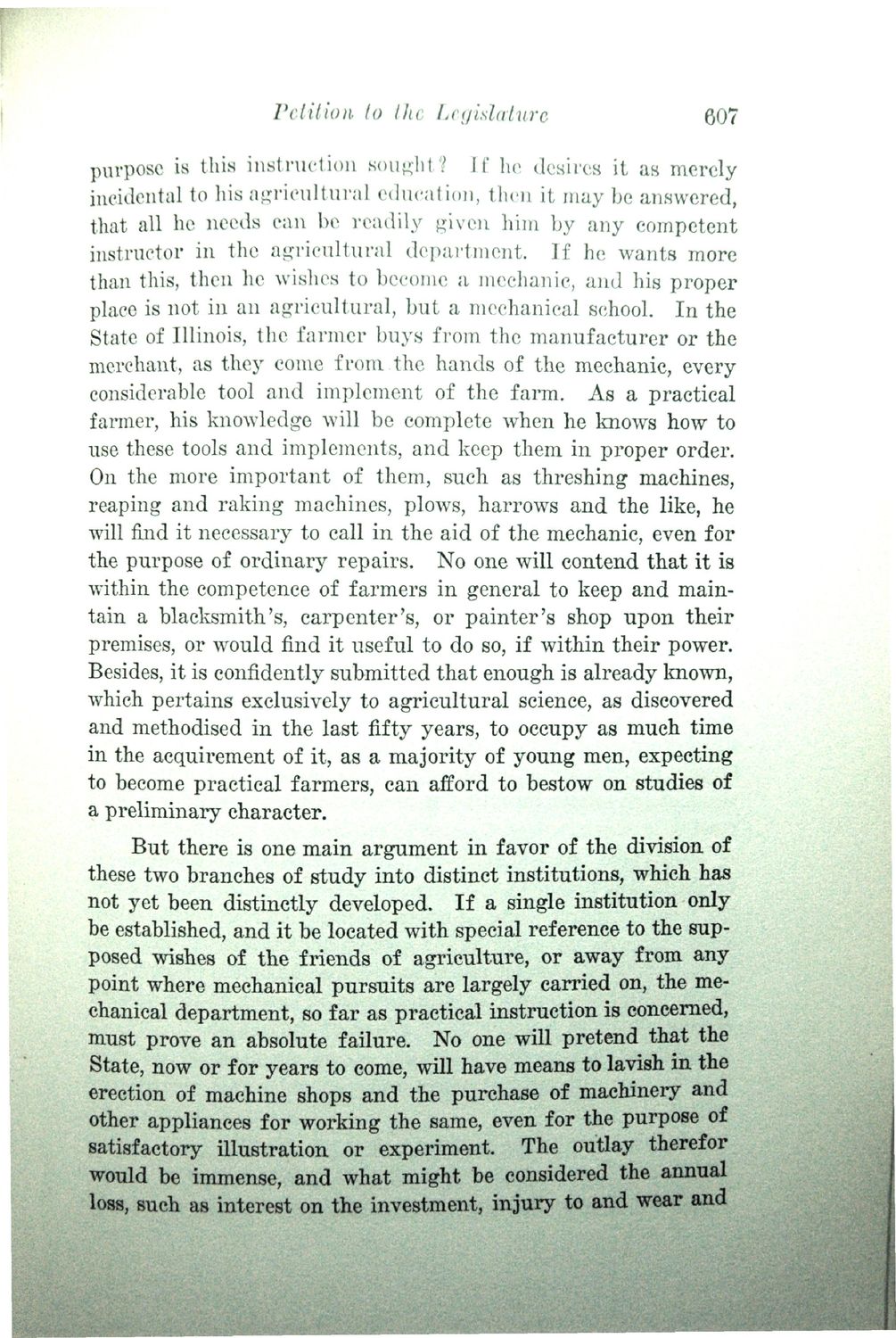| |
| |
Caption: Book - History of the University (Powell)
This is a reduced-resolution page image for fast online browsing.

EXTRACTED TEXT FROM PAGE:
Petition to the Legislature 607 purpose is this instruction sought? If he desires it as merely incidental to his agricultural education, then it may be answered, that all he needs can be readily given him by any competent instructor in the agricultural department. If he wants more than this, then he wishes to become a mechanic, and his proper place is not in an agricultural, but a mechanical school. In the State of Illinois, the farmer buys from the manufacturer or the merchant, as they come from.the hands of the mechanic, every considerable tool and implement of the farm. As a practical farmer, his knowledge will be complete when he knows how to use these tools and implements, and keep them in proper order. On the more important of them, such as threshing machines, reaping and raking machines, plows, harrows and the like, he will find it necessary to call in the aid of the mechanic, even for the purpose of ordinary repairs. No one will contend that it is within the competence of farmers in general to keep and maintain a blacksmith's, carpenter's, or painter's shop upon their premises, or would find it useful to do so, if within their power. Besides, it is confidently submitted that enough is already known, which pertains exclusively to agricultural science, as discovered and methodised in the last fifty years, to occupy as much time in the acquirement of it, as a majority of young men, expecting to become practical farmers, can afford to bestow on studies of a preliminary character. But there is one main argument in favor of the division of these two branches of study into distinct institutions, which has not yet been distinctly developed. If a single institution only be established, and it be located with special reference to the supposed wishes of the friends of agriculture, or away from any point where mechanical pursuits are largely carried on, the mechanical department, so far as practical instruction is concerned, must prove an absolute failure. No one will pretend that the State, now or for years to come, will have means to lavish in the erection of machine shops and the purchase of machinery and other appliances for working the same, even for the purpose of satisfactory illustration or experiment. The outlay therefor would be immense, and what might be considered the annual loss, such as interest on the investment, injury to and wear and
| |